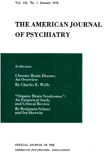TEACHING VS. LEARNING
Abstract
Practically all individual assessment currently in use at all levels of medical education is designed to measure only (i) the length and nature of the educational experience to which the trainee has been exposed; and (ii) his ability to diagnose and respond to the environmental press in a fashion pleasing to those in authority. Ability to integrate data, to analyze problems, to develop and test hypotheses, to take a medical history, to observe clinical phenomena and to synthesize these into a logical differential diagnosis and plan of management are only rarely, if ever, adequately assayed. Likewise, program assessment has generally been limited to a description of the training program, the nature of available facilities and the professional accomplishments of the staff, but systematic data about the performance of its graduates are rarely available.
Preliminary data from the employment of newer approaches to both individual and program assessment in related medical specialities suggest that a wider range of individual competence can be validly appraised and the relative effectiveness of different types of training programs can be objectively and reliably documented.
Access content
To read the fulltext, please use one of the options below to sign in or purchase access.- Personal login
- Institutional Login
- Sign in via OpenAthens
- Register for access
-
Please login/register if you wish to pair your device and check access availability.
Not a subscriber?
PsychiatryOnline subscription options offer access to the DSM-5 library, books, journals, CME, and patient resources. This all-in-one virtual library provides psychiatrists and mental health professionals with key resources for diagnosis, treatment, research, and professional development.
Need more help? PsychiatryOnline Customer Service may be reached by emailing [email protected] or by calling 800-368-5777 (in the U.S.) or 703-907-7322 (outside the U.S.).



